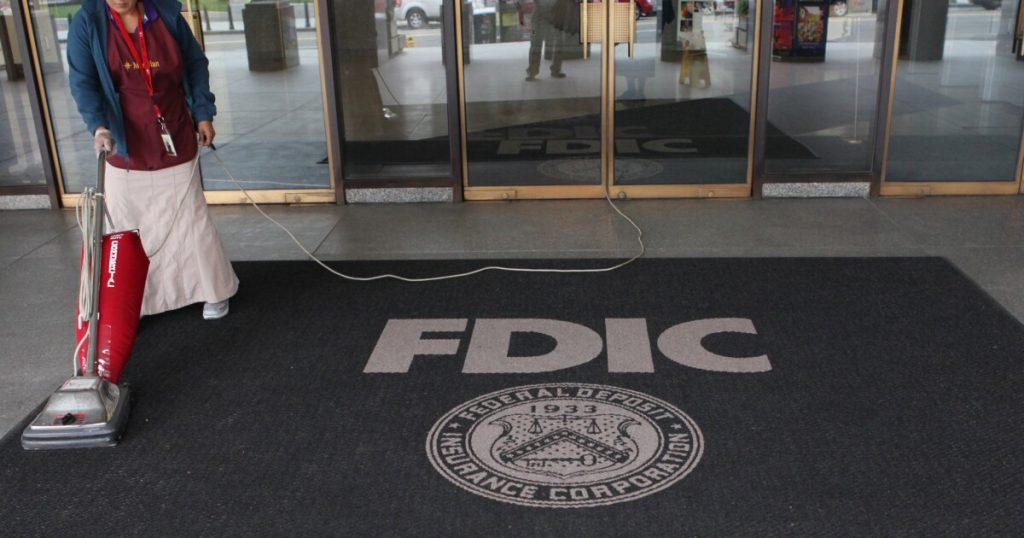The Federal Deposit Insurance Corp. Monday withdrew an amicus brief it filed last year in support of a Colorado state law allowing state authorities to cap interest on loans taken out by its residents from out-of-state lenders.
The legality of the law is being questioned in a lawsuit — National Association of Industrial Bankers, et al v. Weiser, et al. The suit was filed by trade groups representing nonbank lenders and fintechs, including the National Association of Industrial Bankers, the American Financial Services Association and the American Fintech Council.
The Colorado law opts the state out of a clause in the Depository Institutions Deregulation and Monetary Control Act of 1980 that allows state-chartered, FDIC-insured banks to follow interest rate limits set by their home state when lending across state lines — known as interest rate “exportation” — rather than being subject to the caps imposed by the state where the loan is issued.
Much of the legal disagreement stems from two sections of the law that provide related but distinctly worded approaches to which interest rate caps apply in cases where lenders and borrowers are in different states. Section 521 of DIDMCA allows state banks to make loans charging interest at the maximum rate permitted by the state where the bank is chartered. Section 525, however, permits a state to legally opt out of Section 521’s interest-rate regime with respect to loans “made” in that state. The key legal question is how to define where a loan is “made” under Section 525.
Plaintiffs in the case argue that a loan is “made” where the bank itself is located. The industry plaintiffs argue that Colorado’s opt-out — which would have prevented out of state lender’s home state usury caps from superseding Colorado’s — exceeds the limited authority granted under DIDMCA’s Section 525, which allows states to restrict rate exportation only for loans “made in” the opting-out state.
The lawsuit claims that Colorado’s broad definition of when a loan is “made in” the state — extending to any transaction involving a Colorado borrower where the lender advertises or solicits in the state — is overly broad. Plaintiffs argue Congress did not intend to allow states to use the opt-out to restrict the rates that out-of-state banks physically operating outside a state could charge when lending to borrowers living in the opting-out state.
The FDIC under former chair Martin Gruenberg filed its now-rescinded brief in April 2024 in support of the defendant — the Colorado attorney general — to clarify legal issues surrounding Section 525. The FDIC disagreed with the plaintiffs, arguing that the location of a loan under Section 525 is different from the location of a bank under Section 521. Based on legal precedent, the FDIC asserted that a loan is “made” in a state if either the borrower or lender enters into the transaction from the confines of the state borders. If a Colorado borrower finalizes a loan while physically present in Colorado, the agency posited that loan falls under Colorado’s opt-out law.
The FDIC further argued that courts have long recognized that loan agreements occur in both the borrower’s and lender’s states when they are in different locations. This means Colorado has the right to regulate loans involving its residents, even if the lender is based elsewhere. In its brief, the FDIC also dismissed Plaintiffs’ claim that Colorado’s law applies too broadly, arguing that state law only affects transactions when the borrower is physically present in Colorado, that Section 525 was designed to preserve state control over interest rates and therefore Colorado’s opt-out is legally valid.
The American Banker’s Association
The agency’s move to rescind the amicus brief follows the FDIC’s increasing friendliness towards fintechs under acting chair Travis Hill. Hill in January called for a
The CEO of one of the plaintiffs — American Fintech Council’s CEO Phil Goldfeder — issued a statement Monday praising the FDIC’s change of heart.
“Today’s decision to withdraw the amicus finally restores longstanding guidelines and returns pragmatic, non-ideological policymaking to the FDIC,” he said. “We commend the agency for its common-sense approach to creating fairness and stability in lending, and look forward to working with Acting Chairman Hill on further solutions to create regulatory clarity for responsible lenders.”

